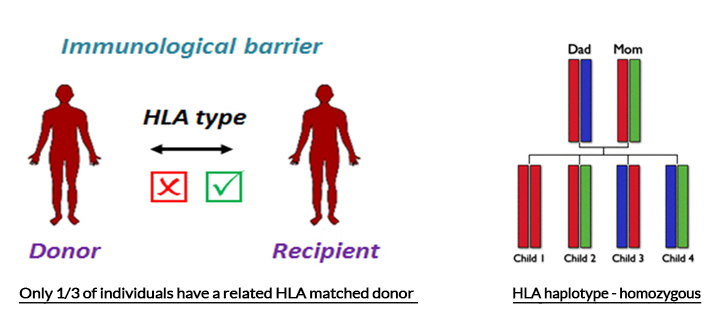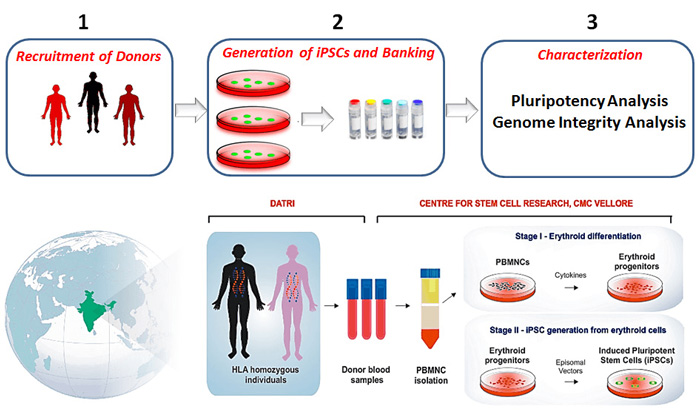The conversion of somatic cells into induced pluripotent stem cells (iPSCs) and their cell-type specific differentiation have revolutionized the field of regenerative medicine and have raised the prospects of personalized medicine to cure various diseases. Pre-selecting the specific donors for the generation of induced pluripotent stem cell (iPSC) lines enables to develop iPSC banks which can theoretically provide matching cells for recipients worldwide. The haplobanking project involves identifying HLA homozygous donors from the Indian population and generating iPSC lines from their cultured cells through good manufacturing practice (GMP). For the haplobanking program, the Centre for Stem Cell Research has been part of the international consortium through the Department of Biotechnology, Government of India aiming to establish harmonized approaches to generate iPSCs for regenerative medicine applications. The Centre for Stem Cell Research / Christian Medical College collaborates with the Blood Stem cell registry DATRI, a non-governmental organization located in Chennai for the collection of blood samples from suitable donors across India, which are HLA typed and screened for infectious diseases at the Christian Medical College, Vellore. A robust method has been established at Centre for Stem Cell Research to generate iPSC lines from cultured erythroid cells derived from peripheral blood mononuclear cells (PBMNCs).


Figure: HAPLOBANKING-Schematic overview for the generation of induced pluripotent stem cell (iPSCs) from HLA homozygous individuals from the Indian population.

